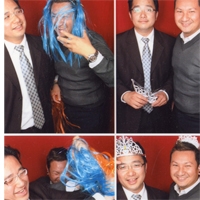 Queering Family Photography will be on display for six weeks at the Stephen Bulger Gallery from Saturday, April 21 to Saturday May 26, 2018. Queering Family Photography, the first exhibition to explore how family photographs reflect, shape, and expand queer forms of affective connection and kinship, will be featured at this year’s Scotiabank CONTACT Photography Festival. Queering Family Photography, conceptualized by lead curator Elspeth Brown and co-curator Thy Phy, is a co-production of The Family Camera Network (FamCam), The ArQuives (The ArQuives) and the University of Winnipeg through contributions from its Two-Spirited Photography Collection. The public opening for the exhibition is on Saturday, April 28th, from 2-5 pm at the Stephen Bulger Gallery (1356 Dundas St W, Toronto). The exhibition Friends and Lovers featuring 1970s Montreal Photographs, by renowned artist Sunil Gupta’s, will also be on view at the Stephen Bulger Gallery. On Thursday April 26th, Sunil Gupta (UK), acclaimed filmmaker Richard Fung (Canada), and prominent Two-Spirited activist Albert McLeod will be part of a roundtable conversation with co-curators Elspeth Brown and Thy Phu. This event is taking place at the University of Toronto’s Hart House East Common Room on Thursday April 26, 5-7pm. “Queering Family Photography invites visitors to look closely at family photography and its role in shaping and restructuring the intimate lives of LGBTQ2S+ people,” notes Elspeth Brown. “LGBTQ2S+ people have created ‘families’ in multiple ways, including families of choice as well as of origin. Photography offers a direct means of projecting queer joy and a potent resource for survival and resilience.” A distinctive feature of the exhibition is a 20 minute video of oral histories about queer and trans family photos, drawn from the work of The Family Camera Network, which is collecting queer and trans family photos and oral histories about them, with a focus on migration and racialization. The ArQuives is one of this project’s two collecting partners. Queering Family Photography has three parts, featuring over 125 objects, including photographs, a video montage of oral history footage and photo albums that are discretely assembled into the separate themes of Instant Intimacies, Domesticities, and Publics. Instant Intimacies
Queering Family Photography will be on display for six weeks at the Stephen Bulger Gallery from Saturday, April 21 to Saturday May 26, 2018. Queering Family Photography, the first exhibition to explore how family photographs reflect, shape, and expand queer forms of affective connection and kinship, will be featured at this year’s Scotiabank CONTACT Photography Festival. Queering Family Photography, conceptualized by lead curator Elspeth Brown and co-curator Thy Phy, is a co-production of The Family Camera Network (FamCam), The ArQuives (The ArQuives) and the University of Winnipeg through contributions from its Two-Spirited Photography Collection. The public opening for the exhibition is on Saturday, April 28th, from 2-5 pm at the Stephen Bulger Gallery (1356 Dundas St W, Toronto). The exhibition Friends and Lovers featuring 1970s Montreal Photographs, by renowned artist Sunil Gupta’s, will also be on view at the Stephen Bulger Gallery. On Thursday April 26th, Sunil Gupta (UK), acclaimed filmmaker Richard Fung (Canada), and prominent Two-Spirited activist Albert McLeod will be part of a roundtable conversation with co-curators Elspeth Brown and Thy Phu. This event is taking place at the University of Toronto’s Hart House East Common Room on Thursday April 26, 5-7pm. “Queering Family Photography invites visitors to look closely at family photography and its role in shaping and restructuring the intimate lives of LGBTQ2S+ people,” notes Elspeth Brown. “LGBTQ2S+ people have created ‘families’ in multiple ways, including families of choice as well as of origin. Photography offers a direct means of projecting queer joy and a potent resource for survival and resilience.” A distinctive feature of the exhibition is a 20 minute video of oral histories about queer and trans family photos, drawn from the work of The Family Camera Network, which is collecting queer and trans family photos and oral histories about them, with a focus on migration and racialization. The ArQuives is one of this project’s two collecting partners. Queering Family Photography has three parts, featuring over 125 objects, including photographs, a video montage of oral history footage and photo albums that are discretely assembled into the separate themes of Instant Intimacies, Domesticities, and Publics. Instant Intimacies
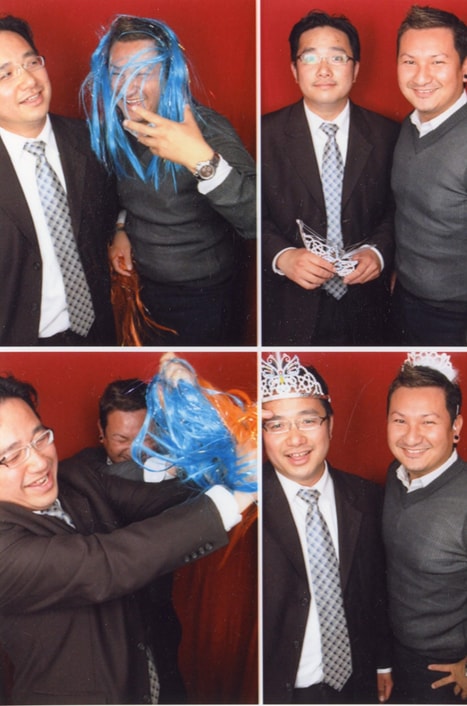
Shanobi Lam & Hon Lu, 2009, digital image, Courtesy of The Family Camera Network, The ArQuives and Hon Lu. Photographer: photo booth.
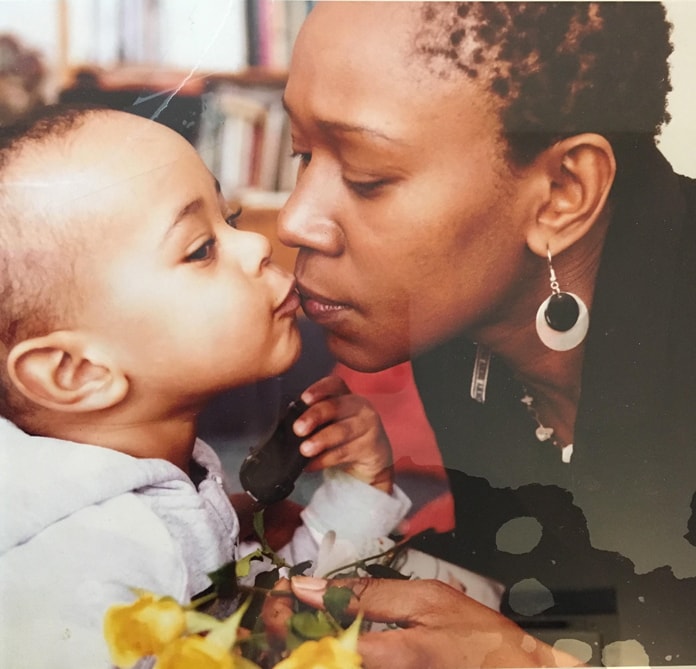
Teo and Matthew, c. 2008, digital image, photographer: unknown. Courtesy of The Family Camera Network, The ArQuives and Teo Owang.
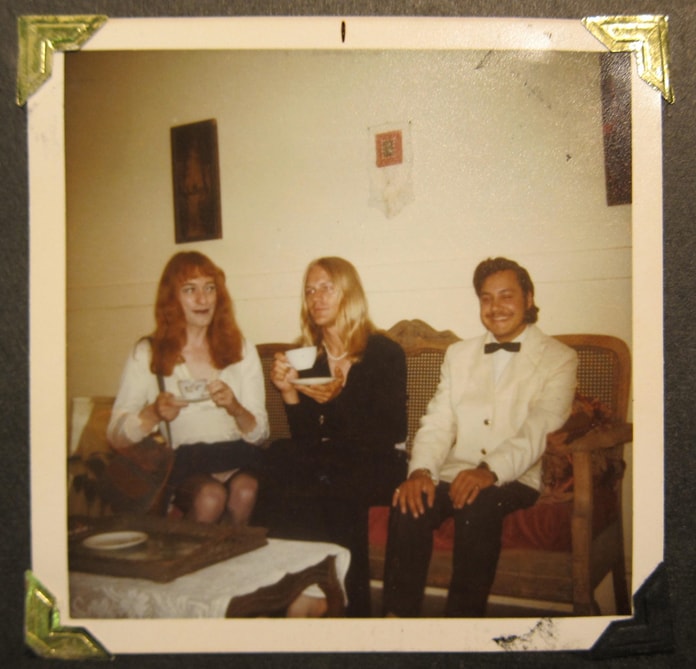
Rupert Raj, Michael Camp, and Micheline Johnson, c. 1974, Kodacolor print, 3.5″ x 3.5″, The Family Camera Network, The ArQuives, and Rupert Raj. Photographer: unknown.
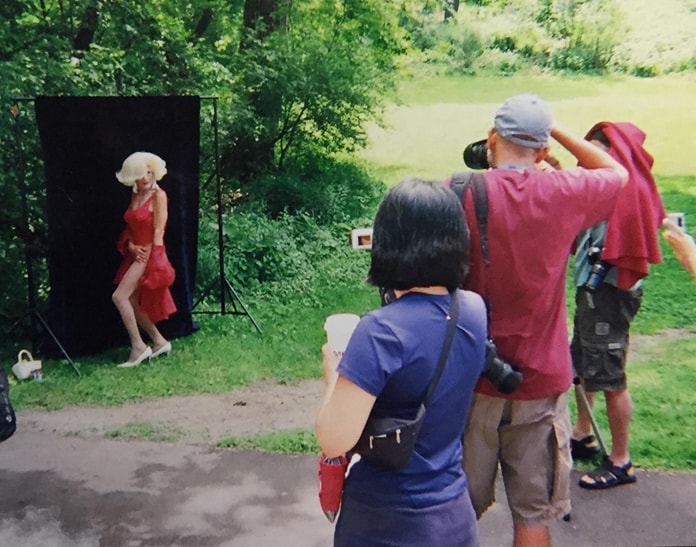
Outdoor photo shoot, digital image, photographer: unknown. Courtesy of The ArQuives and the 2 Spirited People of The 1st Nations.
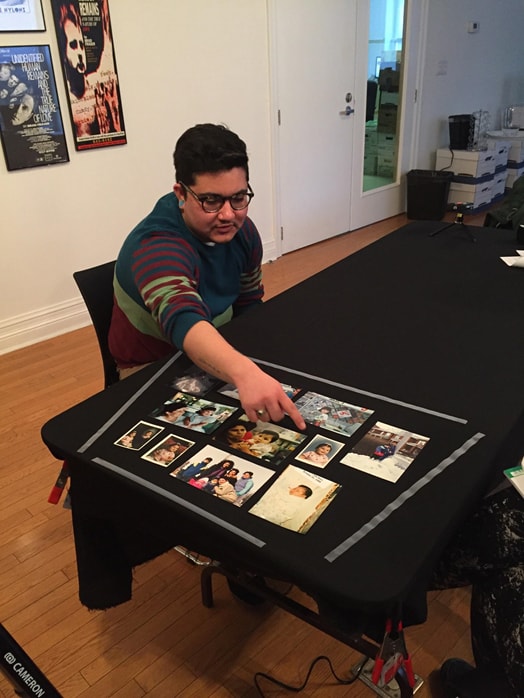
Cecilio Escobar, interview about his family photographs for the Family Camera Network, 2017, digital image, Courtesy of The Family Camera Network, the Canadian Gay and Lesbian Archives and Cecilio Escobar. Photographer: Celio Barreto

